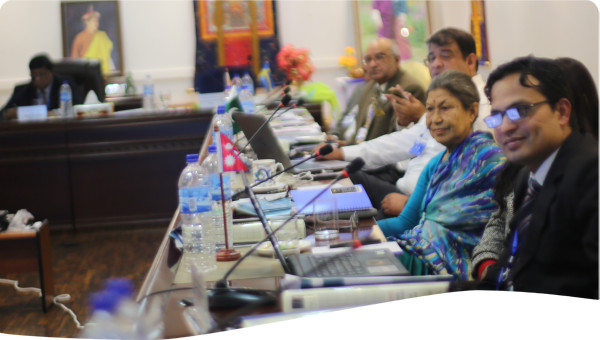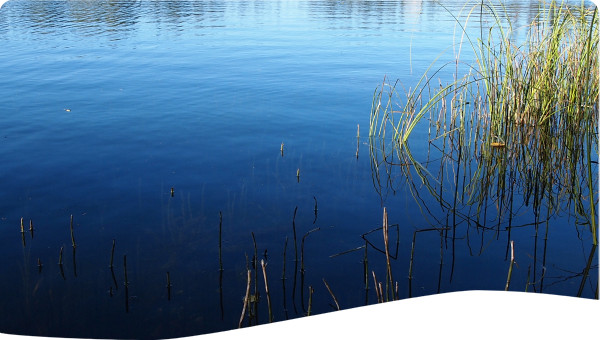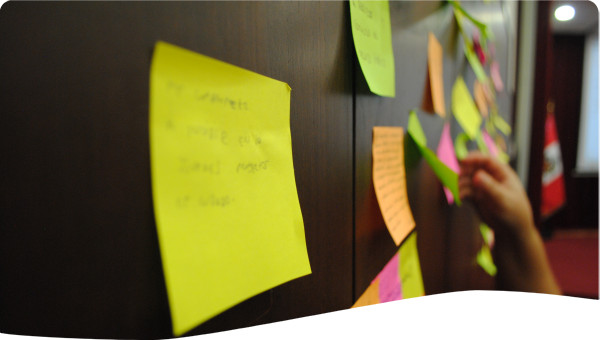In 2023, Sri Lanka’s Ministry of Irrigation completed its 3rd reporting cycle on SDG indicator 6.5.1 measuring the degree of implementation of Integrated Water Resources Management (IWRM). Its report to the United Nations Environment Programme (UNEP) expands on Sri Lanka’s progress and challenges in water management. Facilitated by GWP Sri Lanka (SLWP) and coordinated by SDG 6 IWRM Support Programme, the multi-stakeholder reporting process assessed Sri Lanka’s progress with a score of 49, indicating moderate implementation. Key takeaways stress the importance of ongoing training, partnership with funders, equitable cost recovery in water distribution, and addressing governance challenges.
In Sri Lanka, there is consensus among key water agencies on the establishment of a Water Resources Secretariat in line with the approved water policy. Furthermore, as of February 2024, the country has implemented a substantial number of projects by incorporating climate-resilient water resources plans and completed at least 11 river basin plans that address climate change impacts on water resources and river health. However, the unhealthy financial situation does not allow the government to allocate financing for new developments and most of the planned investments are continuing with a reduced budget.
Reporting on the status of implementation of SDG 6.5.1 itself is mandatory for all UN Member States, while an inclusive and equitable reporting process provides crucial information on a country’s key challenges, progress, and ways forward to attain sustainable water management. Moreover, IWRM requires a multidisciplinary approach, therefore it is equally important to introduce the IWRM principles to other disciplines as well as gathering their views to develop a comprehensive report. To ensure this, all key stakeholders and relevant actors were consulted through a multi-stakeholder approach and their views on how to assess the current status and challenges were incorporated, ahead of the next reporting cycle. The process was able to create awareness and knowledge management on IWRM and mobilise the commitment of decision-makers to institutionalise IWRM elements.
The reporting is done by answering 33 questions and assessing the degree of implementation on a scale from 0 to 100, where 0 = Very low, 20 = Low, 40 = Medium-low, 60 = Medium-high, 80 = High, and 100 = Very high. The justification for the scoring has to be supported in a brief status description, followed by the way forward to achieve Sustainable Development Goal 6.5 by 2030. The survey questions are organised according to the four main pillars of IWRM: Enabling Environment, Institutions and Participations, Management Instruments and Finance. This year, slight changes were made in the questionnaire to include free text on the relevance of climate change.
Sri Lanka complied with the process and has participated in all 3 reporting cycles so far. Aligned with the reporting cycle, Sri Lanka conducted its baseline reporting in 2017 and its first progress report in 2020. Despite the COVID-19 pandemic in 2020, the Focal Point (i.e. Ministry of Irrigation) managed to conduct the reporting through an orientation programme followed by a roundtable discussion by engaging only 10 water sector representatives. The third reporting was conducted in 2023, with the help of GWP Sri Lanka (Sri Lanka Water Partnership/SLWP) which was supported through the SDG 6 IWRM Support Programme.
In 2023, at the request of the Country Focal Point, SLWP/GWP provided financial support to conduct the consultation process and record the views of key stakeholders in the water sector of Sri Lanka. Furthermore, a facilitator was hired based upon the proposal of the Focal Point, to conduct the stakeholder consultation and complete the survey on time.
The main multistakeholder consultation workshop was held on 19 September 2023, at the International Water Management Institute (IWMI) in Colombo, organised by the SLWP with the guidance of the Ministry of Irrigation. It was attended by 36 participants out of 48 invited. The representation included stakeholders from the Government, Academia, and Non-Government Sectors. Seventeen different agencies of the government were represented at the consultation. The well represented consultation was a result of several orientation sessions that were conducted with key water agencies and extensive discussions had been carried out in advance with the country Focal Point, Eng (Ms) Namalee Madawalagama, Additional Secretary to the Ministry of Irrigation and her team at the Ministry. The facilitator and SLWP also attended to those discussions and clearly defined the responsibilities to organise the multi-stakeholder consultation and for finalising the SDG 6.5.1 report. The invitation and list of stakeholders were prepared by the Country Focal Point, assisted by Eng. (Mr) Rohan Perera, Director of the Ministry of Irrigation.
During the workshop, participants were requested to form four groups corresponding to the four dimensions of IWRM: Enabling environment, Institutions and Participation, Management instruments and Financing, according to their institutional and functional backgrounds. The process, interpretations, and entries to Description and Progress and Way Forward were presented by Mr Paul Glennie, Senior Technical Advisor at UNEP-DHI. The orientation of the groups further explained how the terminology applies to the Sri Lankan context.
Following the group work, the responses from group leaders were collected and compiled to complete the first draft of the survey instrument before forwarding it to UNEP. Several follow-through sessions were conducted to address the comments received from the SDG 6.5.1 Help Desk in order to complete the final draft.
The facilitator of the workshop, Mr Ananda Jayaweera, shared his reflections from the workshop. He pointed out how the high turnover of government staff and the election cycles of the country affect the reporting. The staff positions of the ministries are typically held for less than three years before one is moved to a different office. Drawing on experience from previous reporting and years of experience with the government sector, Mr Ananda Jayaweera emphasises the importance of continuous training and education on IWRM reporting. “During the next two years, there could be another person introduced as the Country Focal Point and everything has to be repeated,” says Mr Jayaweera. Second, party politics and changing interests with the introduction of new governments affect public administration, and IWRM is rarely on the agenda. Therefore, constant advocacy for its importance needs to be recognised for attaining not just SDG 6.5.1 by 2030, but by extension, many other water-related targets, both within the SDGs and other global frameworks.
The Final Survey was completed by 20 October 2023 and shared with the SDG 6.5.1 Help Desk by the Country Focal Point. Apart from the report itself, a noteworthy but hard-to-measure outcome of the reporting process was the relations built and knowledge shared between stakeholders. These relations are the very basis for IWRM.
Reflecting on the process leading up to the main workshop and the reporting, Eng (Ms) Madawalagama further pointed out the significance of the collaboration with SLWP, as opposed to other donors: “SLWP supported us to gather all relevant stakeholders to a common table, initiate a dialogue and come to one common solution”. She also noted that a few important stakeholders, including the Ministry of Finance and Ministry of Fisheries, who were not present during the workshop, would be essential to invite for future workshops.
The round table discussions held before the main workshop allowed the Country Focal Point to disseminate the key messages of IWRM to a wider audience. The discussions held prior to the consultation and for report validation were also attended by more than ten officials representing the Ministry of Irrigation and Mahaweli Authority. The Country Focal Point also noted how the participants appreciated the opportunity to contribute and attended the workshop till the end because they considered it important to have their say in the final report. “Their contribution was extremely good” she explains.
With regard to institutions and participation, a lack of coordination was identified as the main challenge to the implementation of IWRM. Representatives of the Ministry of Water Supply highlighted that the National Coordination Meeting conducted by the Secretary to the Ministry, a Multistakeholder Platform for the WASH sector could serve as inspiration for a similar formal coordination mechanism for IWRM.
Management Instruments cover a wide range of tools including regulations, techniques, targets, water charges and tariffs, technical guidelines, and monitoring of water resources availability and quality. The group found that considerable efforts are needed to build institutional capacity to institutionalise IWRM elements in the water resources assessment, river basin planning, and sustainable utilisation for equitable allocation. This is to be addressed through a comprehensive technical assistance programme to develop hardware and software to incorporate IWRM targets in river basin planning. This means that water resource plans need to be prepared based on quantitative, qualitative, and ecological perspectives through a participatory approach. The establishment of the proposed National Water Resources Secretariat will provide an opportune moment for introducing IWRM elements.
Sri Lanka’s water sector is manned by high-quality professionals also future professionals will soon enter the workforce. IWRM capacity building is incorporated into the curricula of engineering undergraduates and post-graduates.
In the discussion on the enabling environment, the group identified the main challenges to progress in the adoption of a National Policy for Water Resources. The economic crisis in the country would be a major factor hampering the next steps in institutionalising the recommendations of the policy, therefore, even though the drafting of water law needs acceleration, it may be delayed due to changes in priorities.
Sri Lanka scored 49 as the average score on IWRM implementation in the 3rd reporting cycle. While the component ‘Institutions and Participation’ scored 63 as the highest, the component ‘Financing’ scored the lowest, only reaching 32. It was observed that the strong institutional base in water sector plays a key role for making a steady progress towards achieving IWRM implementation in Sri Lanka by 2030.
The lessons learned from the SDG 6.5.1 reporting were drawn both from the process of organising the multi-stakeholder consultation, follow-up meetings and the content of stakeholder discussions during the workshop.
- The multi-stakeholder consultation and follow up discussions facilitated collating IWRM data and reaching consensus on the status, progress and way forward.
- The strict group division during the workshop restricted cross-referencing and limited in-depth discussion on cross-cutting issues during the workshop that was revealed only during report writing.
- Drafting of the water law and establishment of a National Water Resources Secretariat are key for IWRM implementation in Sri Lanka.
- Building capacity to institutionalise IWRM elements in the water resources assessment, planning, and sustainable utilisation are needed.
- Mobilising international funding is key to countering the financial crisis on the way to achieving SDG 6.5 in Sri Lanka.
 Case studies
Case studies


